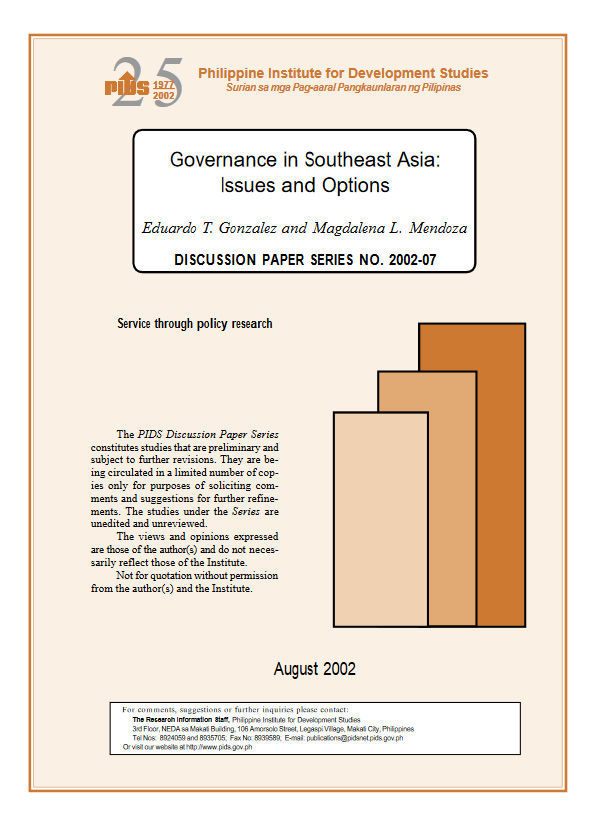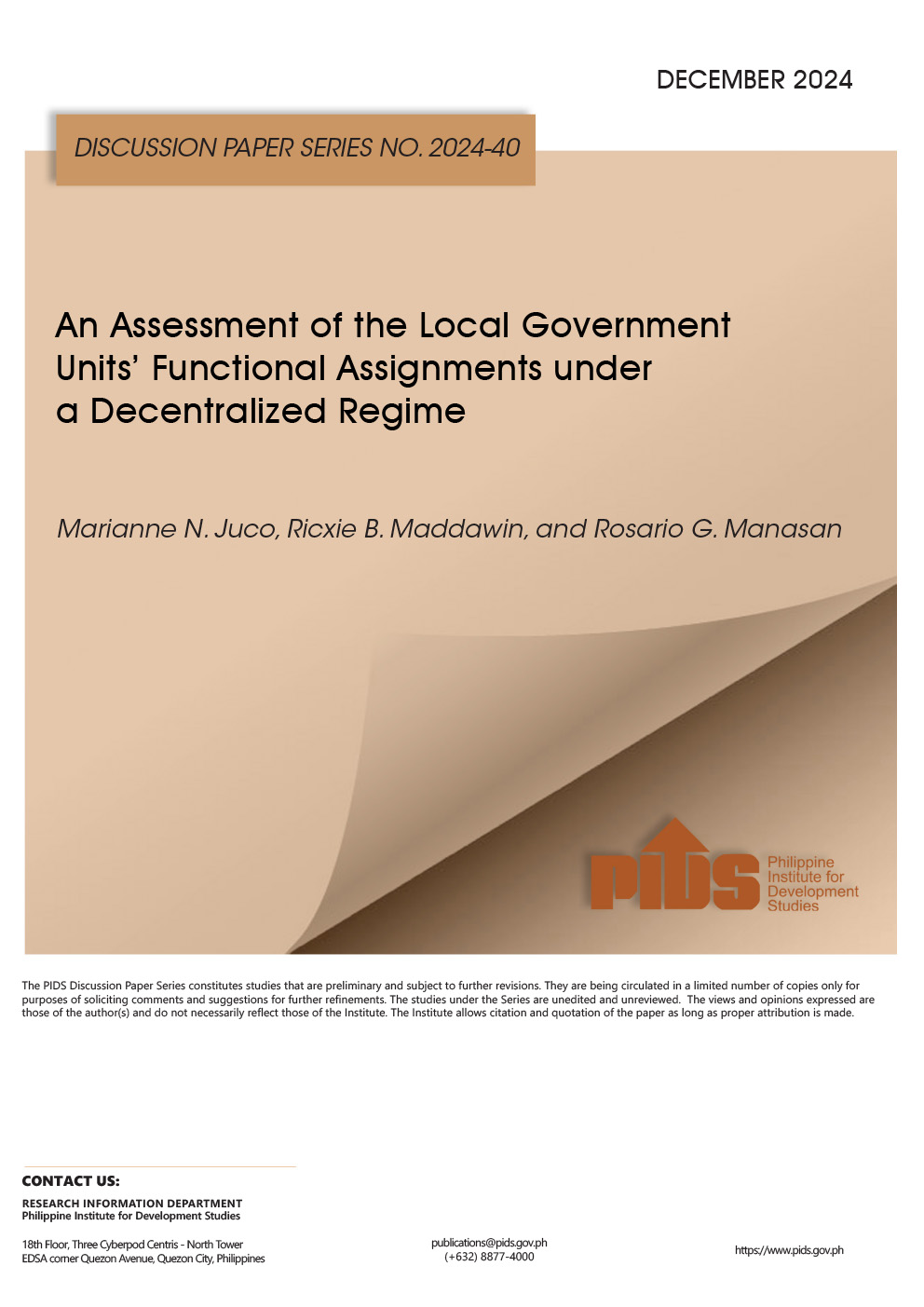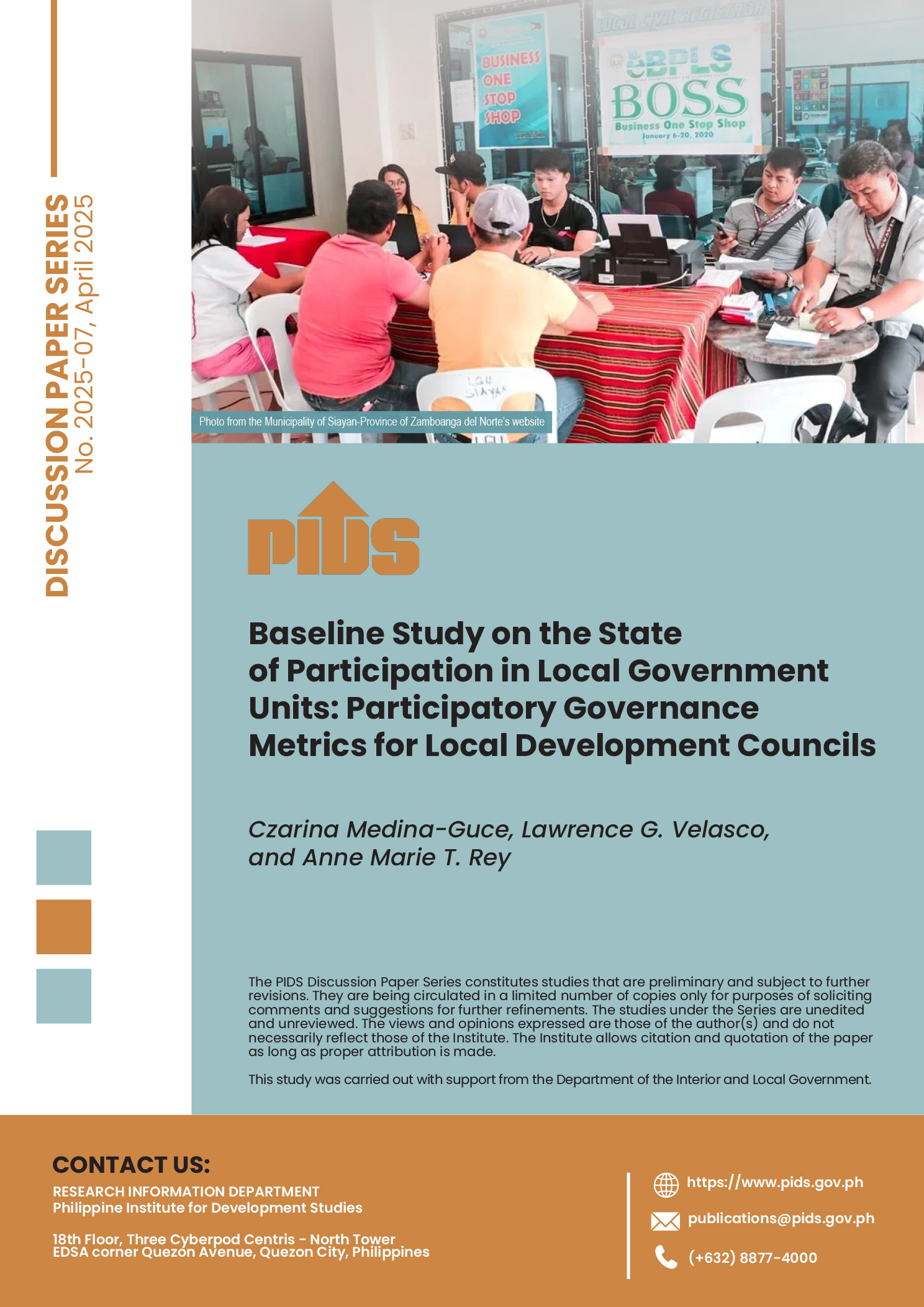This paper attempts to analyze governance systems in Southeast Asia and proposes some policy suggestions that can improve governance practices in the region. It also discusses the links between governance and official development assistance and the role of the Japan Bank for International Cooperation. To put the discussion on governance systems in a proper context, the paper discusses the governance and growth nexus in Southeast Asia; describes the operating governance systems in Southeast Asia; analyzes economic governance, more specifically in the areas of economic management and growth, revenue generation, social spending, access to services, cost of doing business, and corporate governance; and examines political governance, focusing on the rule of law and judicial independence, conflict management, and voice participation. Regardless of level of development, Southeast Asian countries need to establish and strengthen their transparency and accountability structures, both in the public and private sectors, in order to continue the momentum for broad-based growth. It is also necessary to strengthen the fiscal autonomy of their sub-national units, and provide more room for participation by civil society groups. More responsive and simplified regulatory structures are needed, and so are strong law enforcement mechanisms. The rise of ethnic tensions argues for better peace-building institutions to narrow the gap between groups. In all these, the ultimate challenge lies in seeking allies and building constituencies for reform. To make ODA better managed and more effective, donors must work in partnership (that is, have a common basket) rather than in competition. Donors can also enhance the value of aid by increasingly providing ideas and not just goods, untying aid and allowing recipient countries to take “ownership” and greater flexibility in the use of aid. For Japanese development assistance, in particular, Japanese aid agencies must adopt a strategic approach to assisting poverty reduction in the poorer countries of Southeast Asia, while extending their concessional window to middle-income countries. Japan can do well in providing “ideas aid” based on the Japanese experience. Japanese ODA can have higher leverage if an increasing part of the aid is used for institution building and reforms in governance.
Citations
This publication has been cited 1 time
- Haque, M.. 2013. Globalization, state formation, and reinvention in public governance: exploring the linkages and patterns in Southeast Asia. Public Organization Review,13, no. 4, 381-396. Springer.













